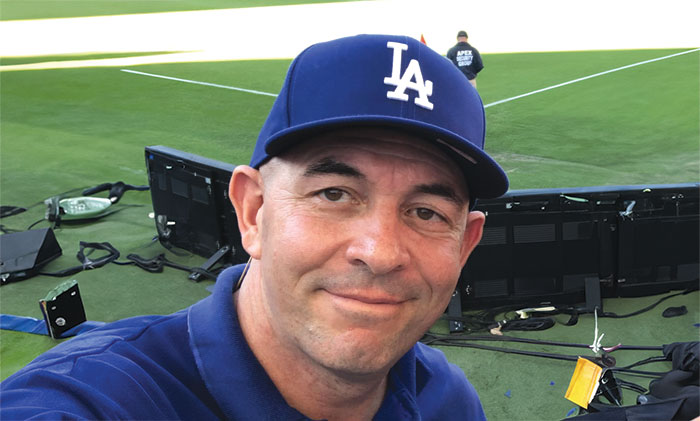This story originally appeared on themedialine.org.
As the situation becomes increasingly dire in the Gaza Strip, some are seeing the noticeable absence of vociferous support from the Arab world for beleaguered Gazans as a function of the Hamas-Muslim Brotherhood relationship.
“Egyptians feel bad for the Palestinians not affiliated with Hamas… [but] the people of Gaza are paying the price because of the enemy relationship which exists of between Hamas, Qatar and Turkey on one side, versus Egypt [on the other],” Mahitab Abdelraouf, an Egyptian journalist, told The Media Line.
Abdelraouf suggests, for instance, that the Islamist Hamas movement is using its media to turn Gazans against Egypt. She offers the example of a presumably much-needed shipment of humanitarian goods delivered by Egypt to the Gaza Strip last week that was sent back upon orders from Hamas officials. Hamas claimed it did so because the products’ “use-by” dates had expired. But according to Abdelraouf, the incident was an attempt to sew animosity toward Egypt among Gazans and even West Bank Palestinians.
“The Egyptians are not against opening the Rafah crossing [the primary location for people crossing between Egypt and the Gaza Strip]. They are against Hamas.” She argued that, “if Rafah was functioning under the control of Mahmoud Abbas and the Palestinian Authority, there would be no problem in opening it. But since Hamas rules it, it will stay closed.”
Hamas was weakened by the fall of the Muslim Brotherhood earlier this year. Egyptians perceive Hamas as not only sympathizing with the organization, but through its military wing actually participating in terrorist operations against the state of Egypt.”
Dr. Abdullah Abdullah, chairman of the Palestine Legislative Council’s political committee ad senior official of the Palestine Liberation Organization (PLO), has warned Palestinians against becoming involved with the political intrigues playing out in the Arab world lest they work against the Palestinian people. Abdullah warns “it’s important not to be ‘influenced one way or another. We try to keep all regional differences outside the question of Palestine,” he told The Media Line.
Last week, Israel agreed to a cease-fire agreement presented by Egyptian President Abdel-Fatteh Al-Sisi which was rejected by Hamas. Hamas spokesman Isra Al-Mo Dallal told The Media Line it was rejected because Hamas “had not been consulted and therefore could not agree to elements of a truce where the content was unknown.”
But according to Abdelraouf, the true reason for the rejection was that it originated with a French request to Qatar to use its influence with to reach a ceasefire. She suggests that had the initiative come from deposed Egyptian President and Muslim Brotherhood leader Mohamed Morsi, Hamas would have gone agreed to it. Abdelraouf believes the feeling among Egyptians is that underlying the Hamas rejection was an attempt to discredit Egypt’s new president, Al-Sisi.
Abdullah asserts that the position of the Palestinian Authority is that no one can deny that Hamas is a part of the Palestinian population and that the PLO and its chairman Mahmoud Abbas is looking out for the interests of all of the people. “What the leadership is doing is paving the way for a smooth relationship between Gaza and Egypt. But from time to time, there are hiccups which have a negative impact on the relationship.” he said.
Dr. Samir Awad, professor of International politics at Birzeit University, disagrees. He says that Egypt has not been playing a “positive role.” He argues that Egypt will not succeed in returning the situation to what it was before the latest violence began. “Egypt is not sponsoring Palestinians,” he said. “They are not really pressuring for their needs and demands,” he told The Media Line.
He says the role of Egypt can be either that of adversary or mediator, but not both. “Egypt is losing its very important role in the region as a mediator and as a country that has ties with Israel.”
At the end of the day, according to Awad, neither Hamas nor Israel is ready for Egypt to offer a new peace plan.
The PLO’s Abdullah strikes a position sympathetic to those espoused by Hamas. He considers Gaza to be an “open prison,” charging that, “Gazans cannot breathe air without the permission of the Israelis.”
He offers understanding if not justification for the Hamas array of tunnels used for staging attacks on Israelis, admonishing that “saying the tunnels are used to ‘attack’ the Israelis is not the correct phrasing. Rather, they are to ‘defend’ the Palestinians.”
“The Israelis expect that if the Palestinians are attacked, they should lie down and play dead, and not to raise their voice, let alone fight back against the Israeli aggression,” according to Abdullah, who expressed the hope that “the West, namely the United States and President Obama, will take into account the lives of the Palestinians as he does the Israelis.”
What’s important is for Israel to not only respect International laws and treaties but for them to be implemented. Citing the loss of 32 Palestinian families in the course of the Israeli operation so far, Abdullah said he hopes that “the West, namely the United States President Barack Obama will take into account the lives of the Palestinians as he does the Israelis.”























 More news and opinions than at a Shabbat dinner, right in your inbox.
More news and opinions than at a Shabbat dinner, right in your inbox.